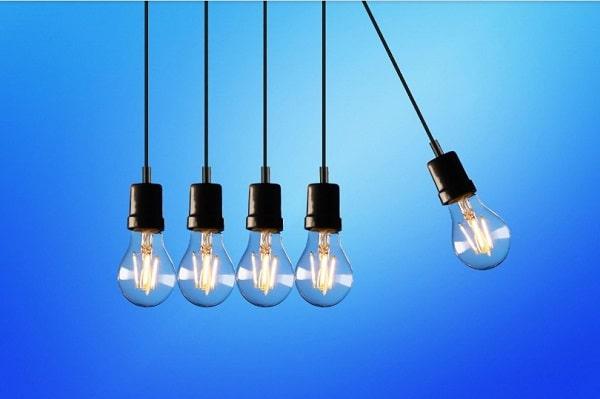With rising prices of everything from gas to groceries, an electric bill can be the last thing you want to deal with. The upcoming summer temperatures and increased air conditioning usage don’t help. There are a few ways you can reduce your electric bill without much effort. Sometimes an electrician can help, and they can offer tips on conserving electricity.
Unplug Power-Draining Appliances When Not in Use
Even if you’re not using an appliance, if it’s plugged into the wall, it’s likely still consuming energy. If an appliance is consuming energy, it’s costing you money. These appliances, also called “vampire appliances,” can account for about 5-10% of your entire energy bill when plugged in. To lower this cost, unplug big, energy-sucking appliances when you’re not using them.
Adjust Your Thermostat When You’re Not Home
The average household in the United States spends about $2000 on energy bills every year. About 43% of the year’s total energy spending results from heating and cooling your home. An easy way to reduce this cost is by keeping your thermostat at a warmer temperature during the summer and at a colder temperature during the winter. You still want to be comfortable, so keep the temperature in a desirable range. During those instances when you are not home, adjust your thermostat accordingly. You don’t need your house to be the perfect temperature when you’re not there.
Change Your HVAC Filters
When you do have your air conditioning or heat on, they suck energy if they’re not working efficiently. Changing your HVAC filters regularly will help to make sure that dirt and debris don’t build up inside your vents.
Use a Ceiling Fan
Though a ceiling fan doesn’t technically “cool” the air as air conditioning does, it can circulate air to create a cooling effect in a room. Using a ceiling fan rather than your HVAC system to cool your home uses much less electricity, and thus saves you more money.
Turn Off the Heat in Your Dishwasher
Just as the HVAC system uses electricity to heat your home, your water heater may also use electricity. It depends on if your water heater is designed to heat via electricity or gas. When you have the “heated dry” or “heated wash” cycles turned on for your dishwasher, it uses this energy. You can save energy and money by turning off these functions on your dishwasher. If your dishes are still wet after the dishwasher has finished running, you can let them drip dry or dry them with a towel instead.
Replace Old Appliances
If your appliances are old, they might not be working as efficiently. A good rule of thumb is to switch out your appliances every 10 years. Appliances that are older than 10 years old are using much more energy than is necessary. More modern appliances take advantage of newer advances in technology that increase energy efficiency. This is especially true for big appliances that use a lot of energy, such as refrigerators. An electrician can help you find new appliances that work for your needs.
Switch Out Your Light Bulbs
There are many energy-efficient light bulbs on the market. Simply switching out your light bulbs with these energy-efficient varieties can save you a significant amount of money. There are two main types of energy-efficient light bulbs: compact fluorescent light (CFL) and light-emitting diode (LED) bulbs.
CFL Light Bulbs
Instead of being in a traditional light bulb shape like incandescent bulbs are, these light bulbs are spiral-shaped. This more compact shape is what gives them their name. These bulbs generate light when an electric current flows through the coiled tubes, which contain argon and mercury vapor. They are more efficient than incandescent light bulbs. These have become less commonly used as LED light bulbs continue to grow more popular.
LED Light Bulbs
LED light bulbs are the most energy-efficient and the longest-lasting types of bulbs. According to the U.S. Department of Energy, they use about 75% less energy and last up to 25% longer than incandescent bulbs. These light bulbs light up when an electrical current runs through a semiconducting material called a “diode.” Then, it illuminates the bulb by emitting photons. LED light bulbs require less wattage than other types of light bulbs, so they don’t use up as much electricity.
Upgrade Your Insulation
Sometimes the cause of high energy usage is old insulation. This can cause air from the outside to leak inside your home. You should check your installation and look into upgrading the system. Doing so can reduce your energy usage. This is because you won’t be running your HVAC system to heat or cool your home more than you need.
Get an Energy Audit from an Electrician
If you have trouble identifying the cause of your high energy bills, try finding an electrician to do an energy audit. In an energy audit, an electrician will check for sources of high energy use and can give you tips to reduce it.
With all the modern advances in energy-efficient technology, reducing your electric bill is easier than ever. Nobody loves a high electric bill but trying any of these tips can make your wallet hurt a little bit less.


